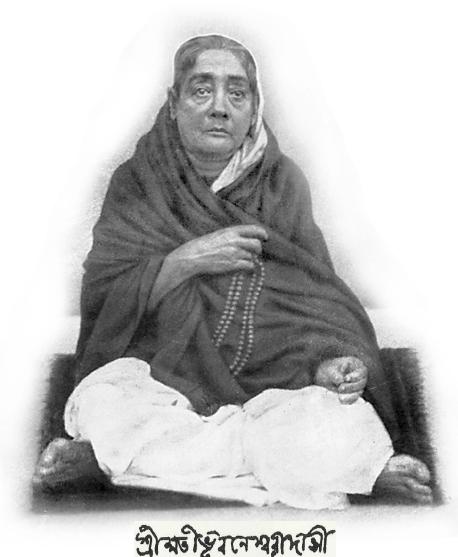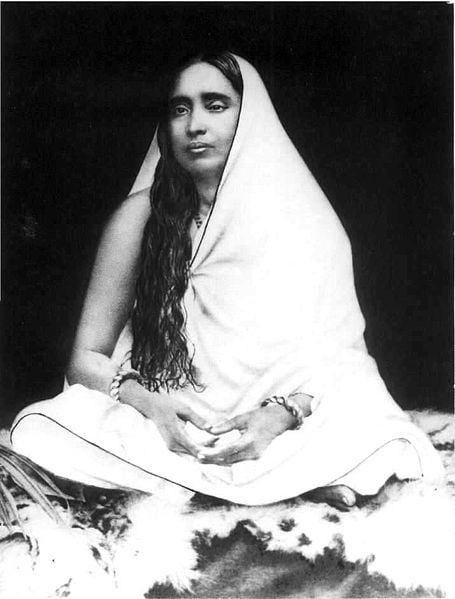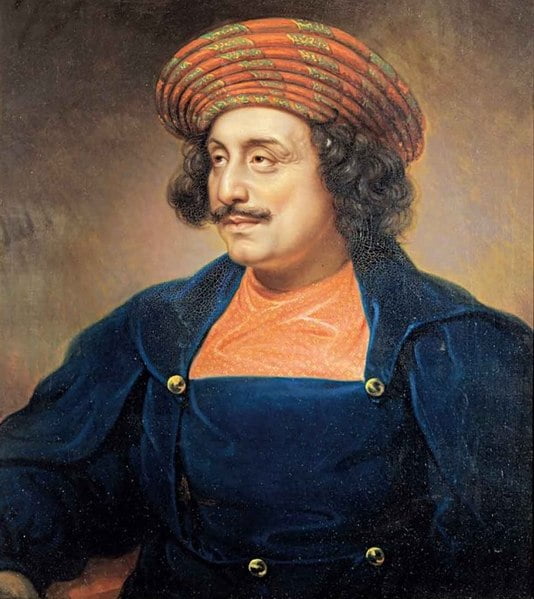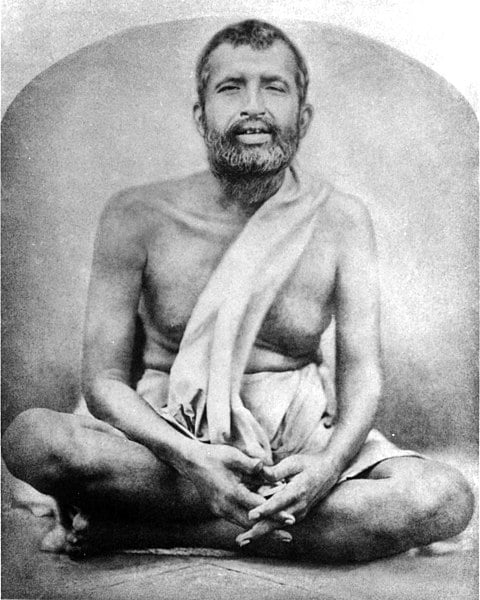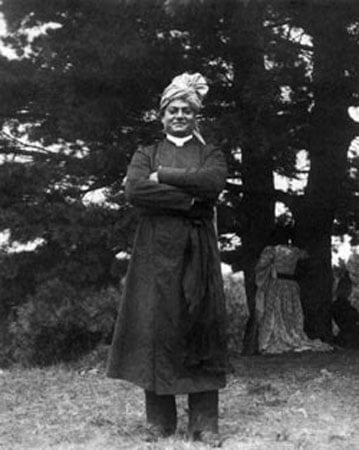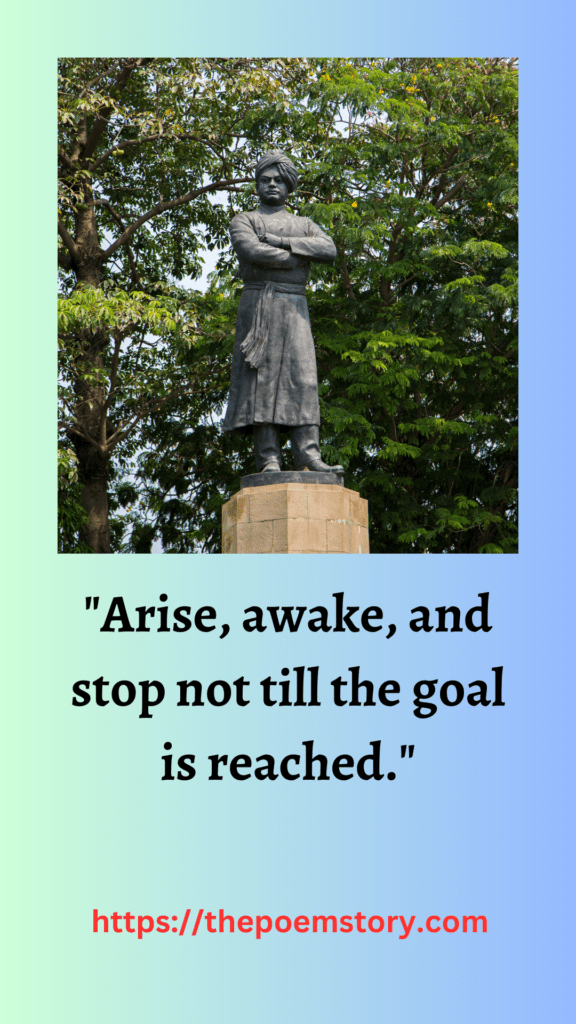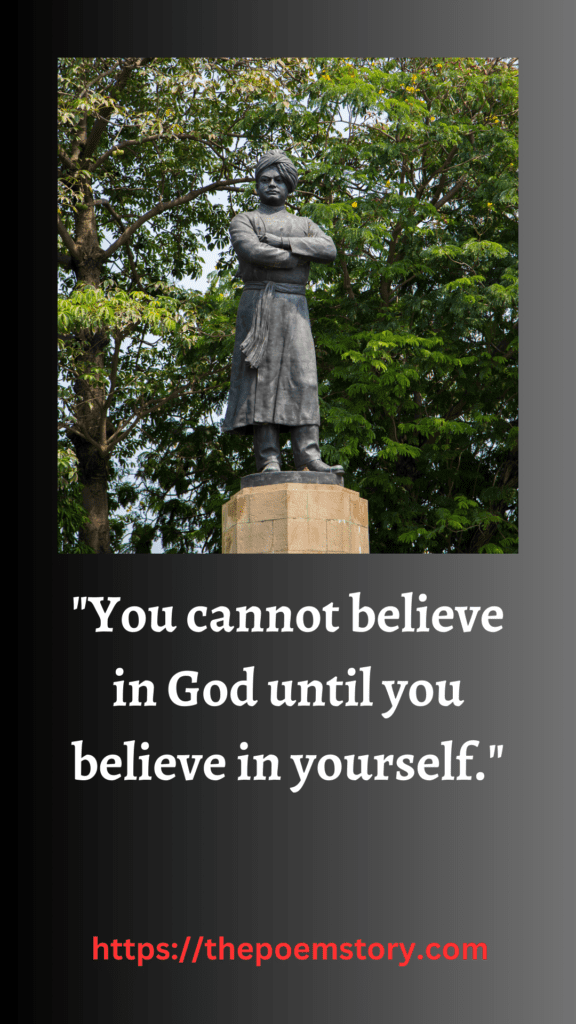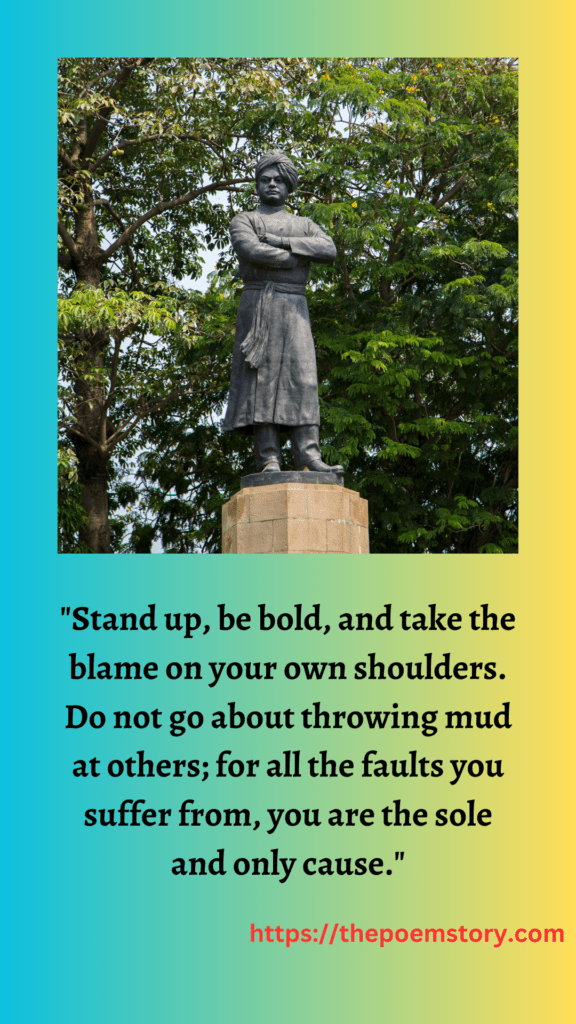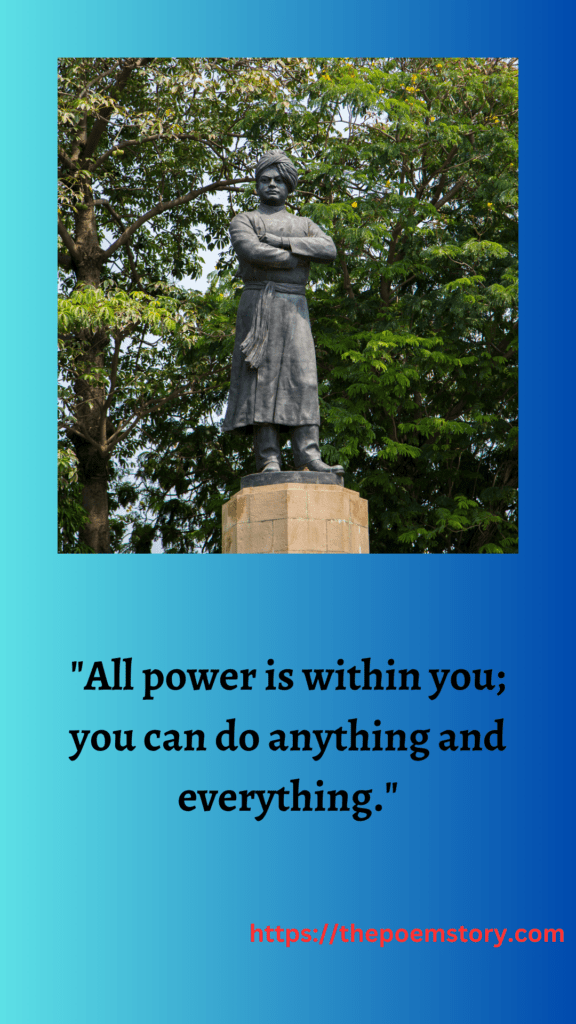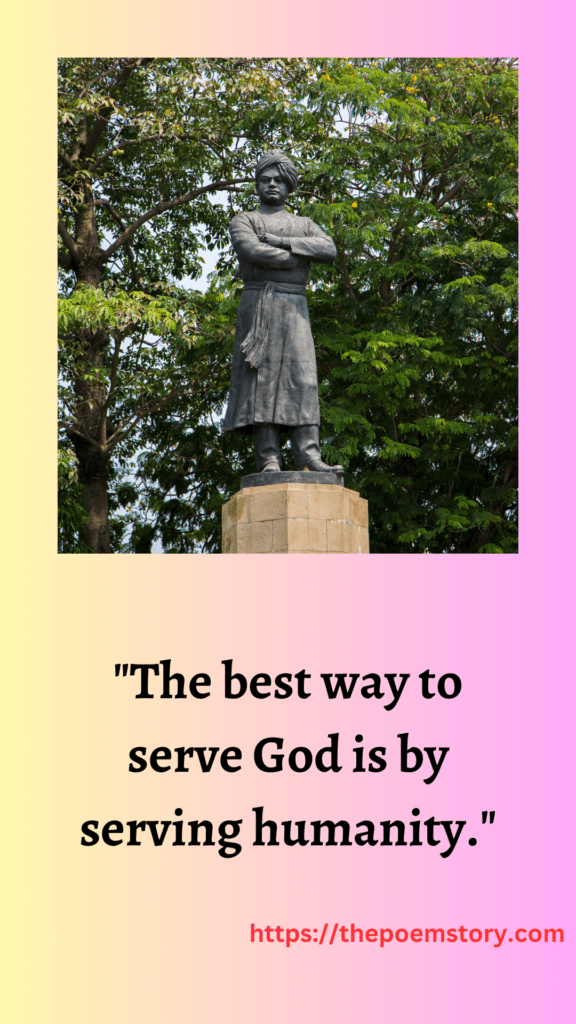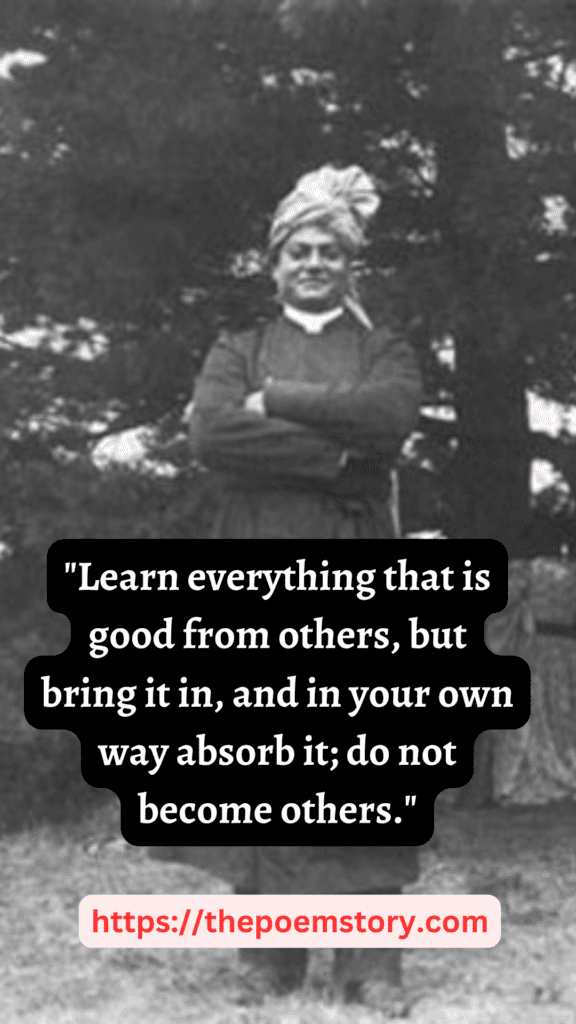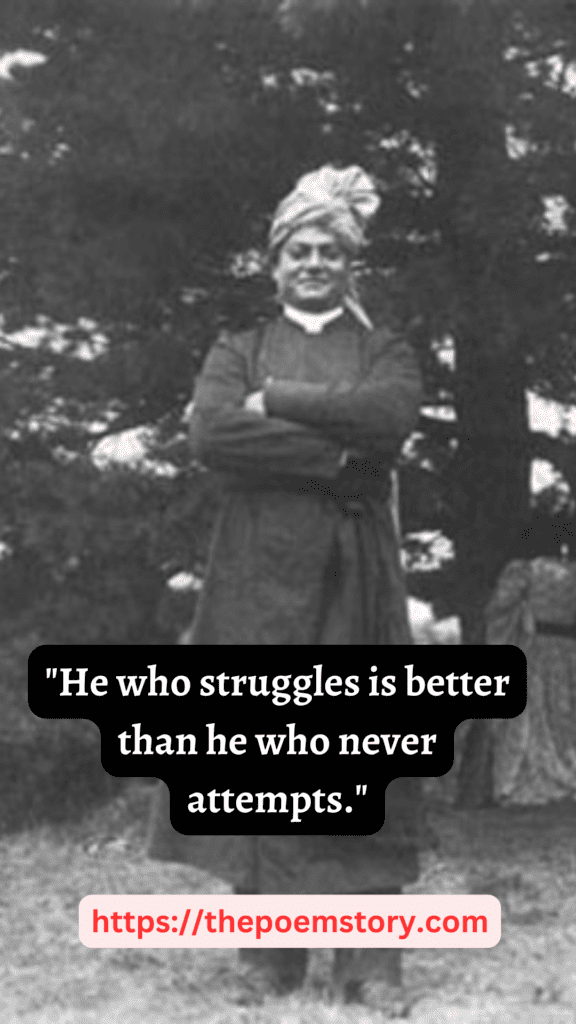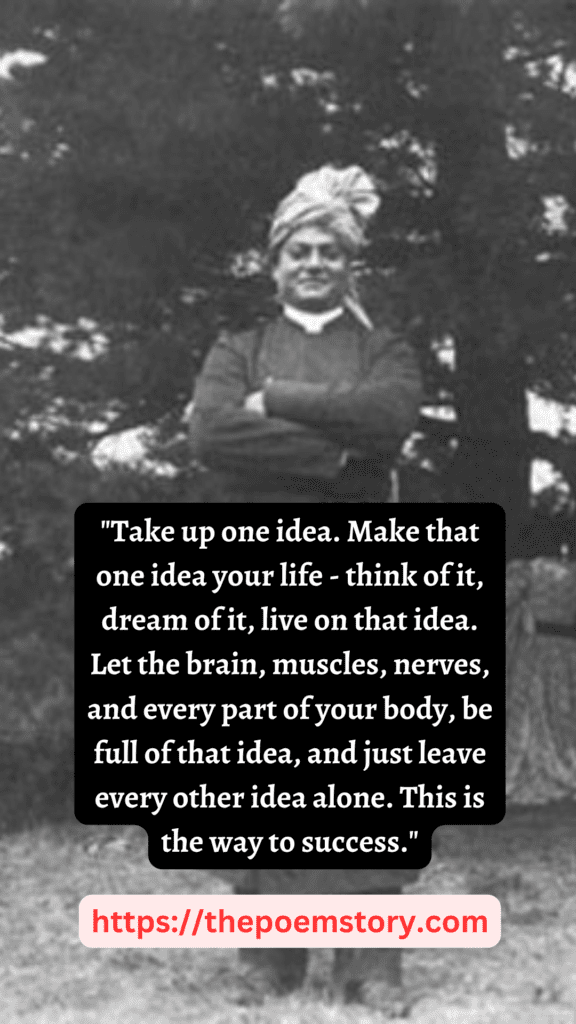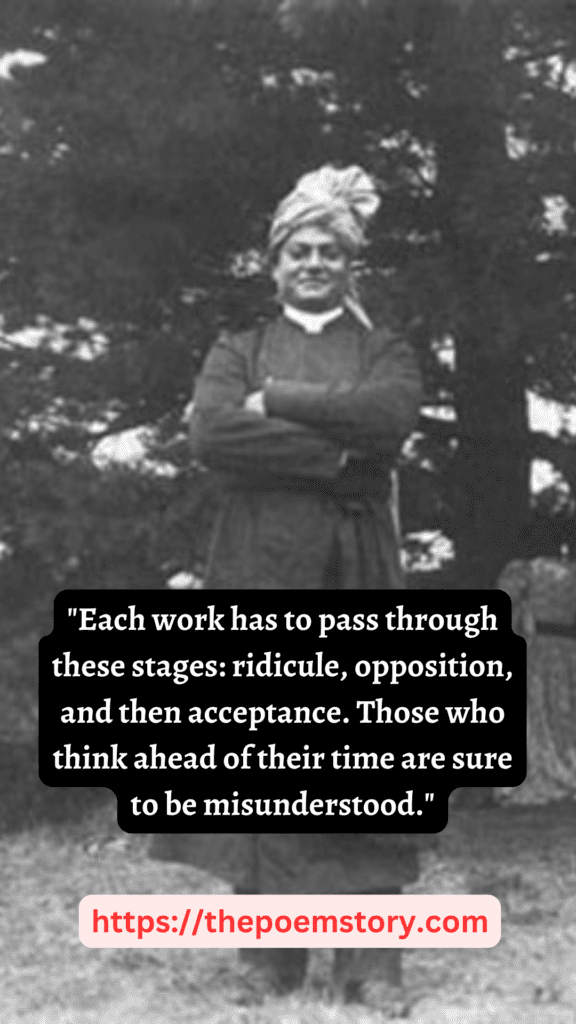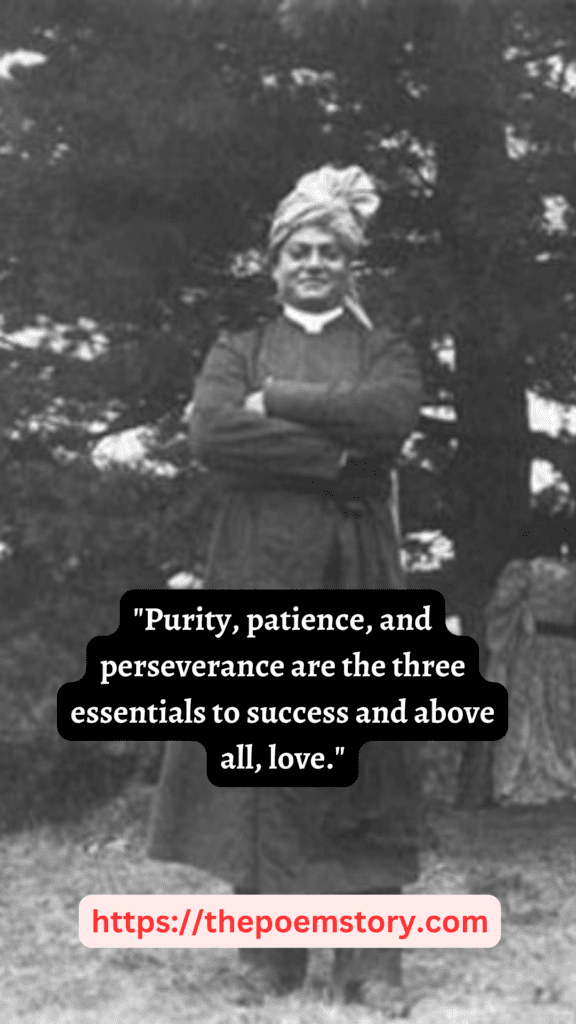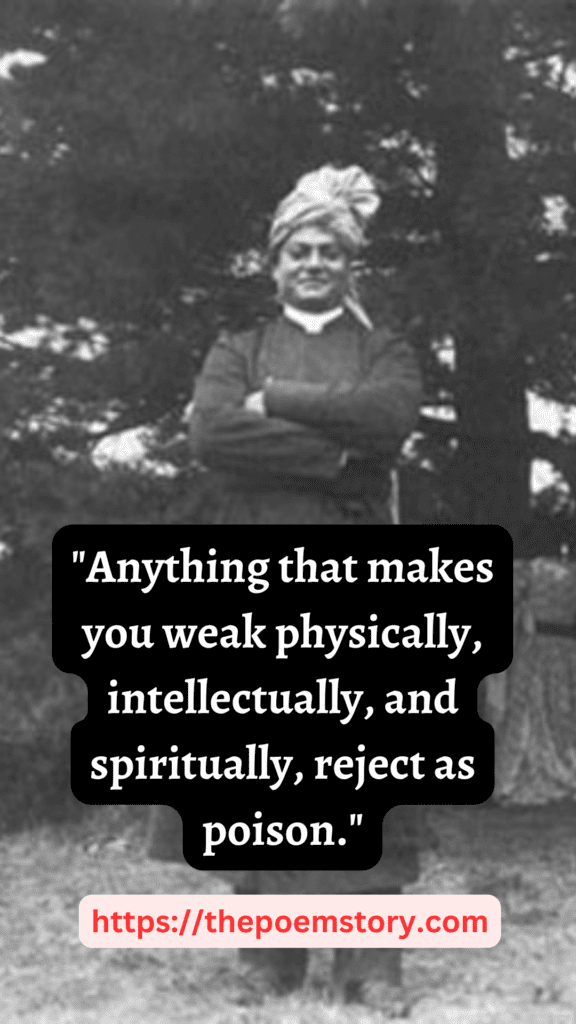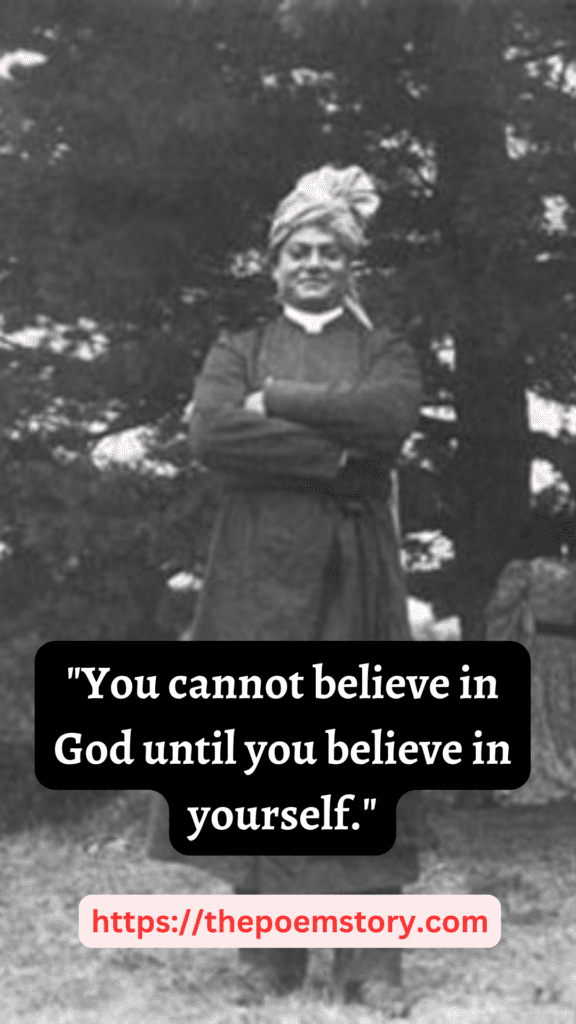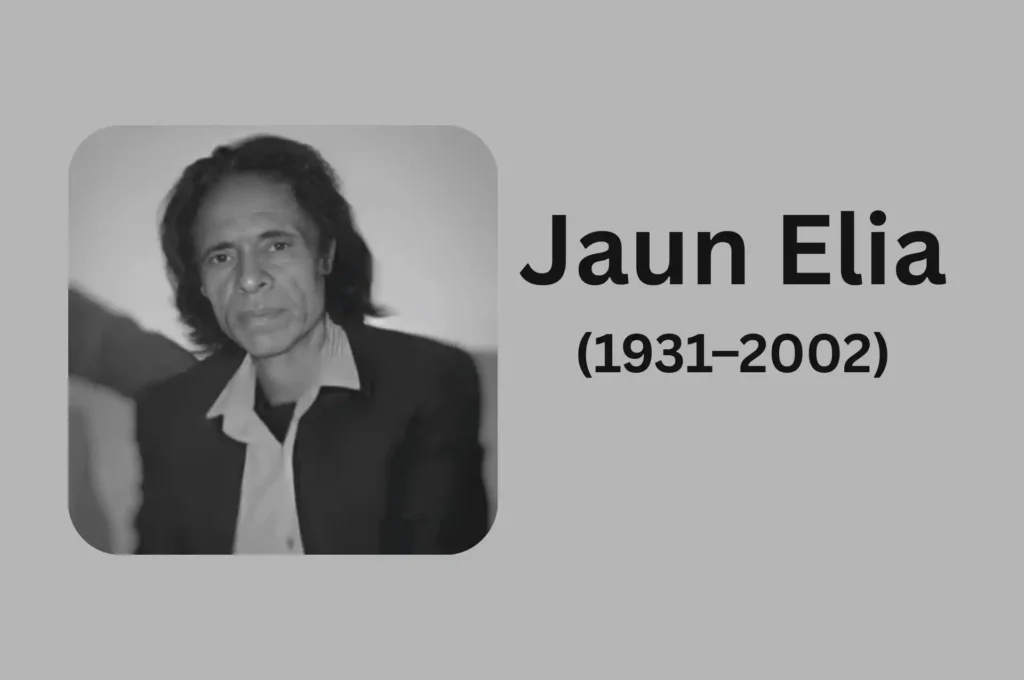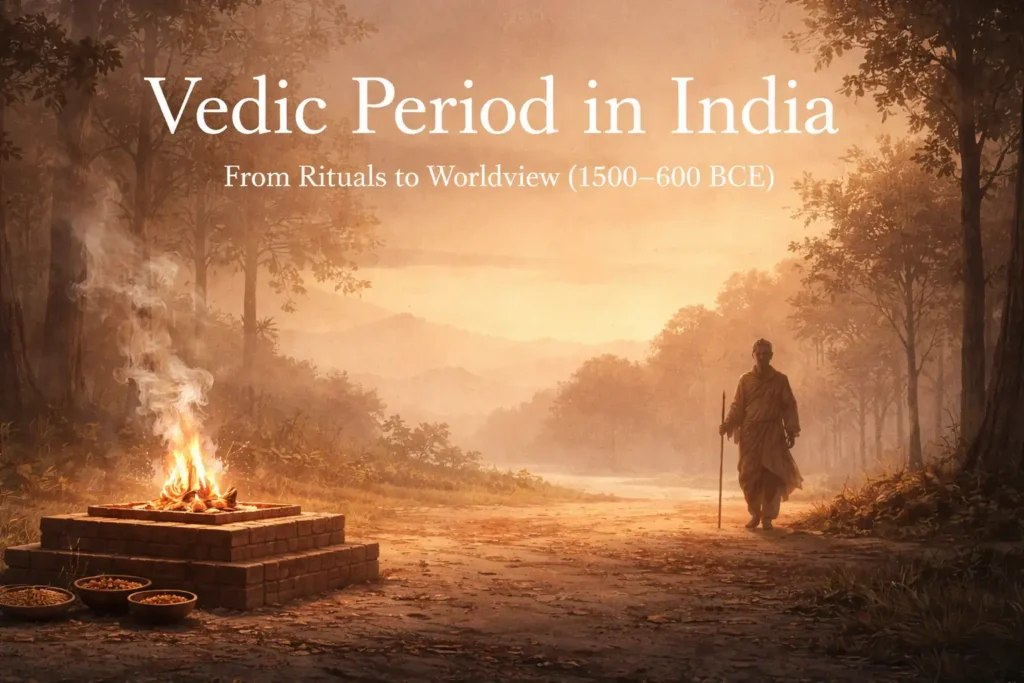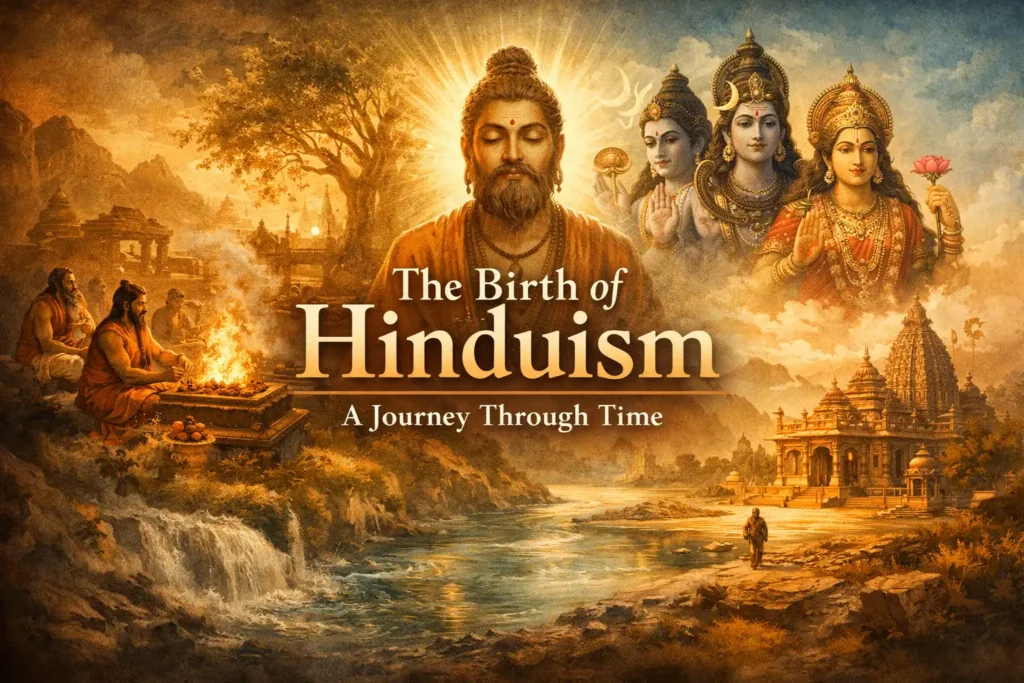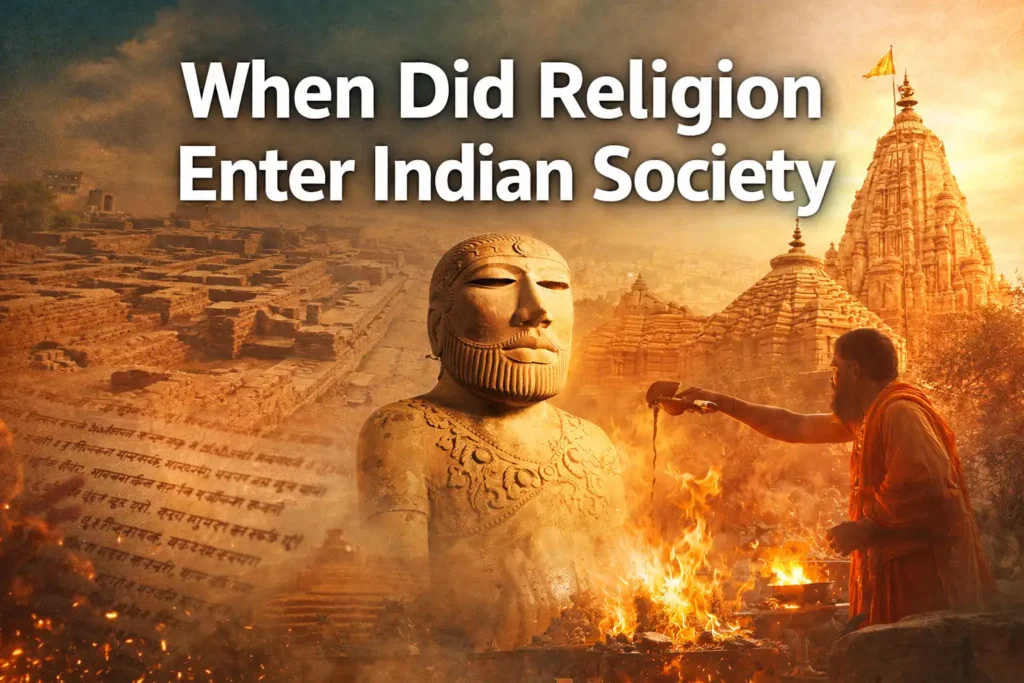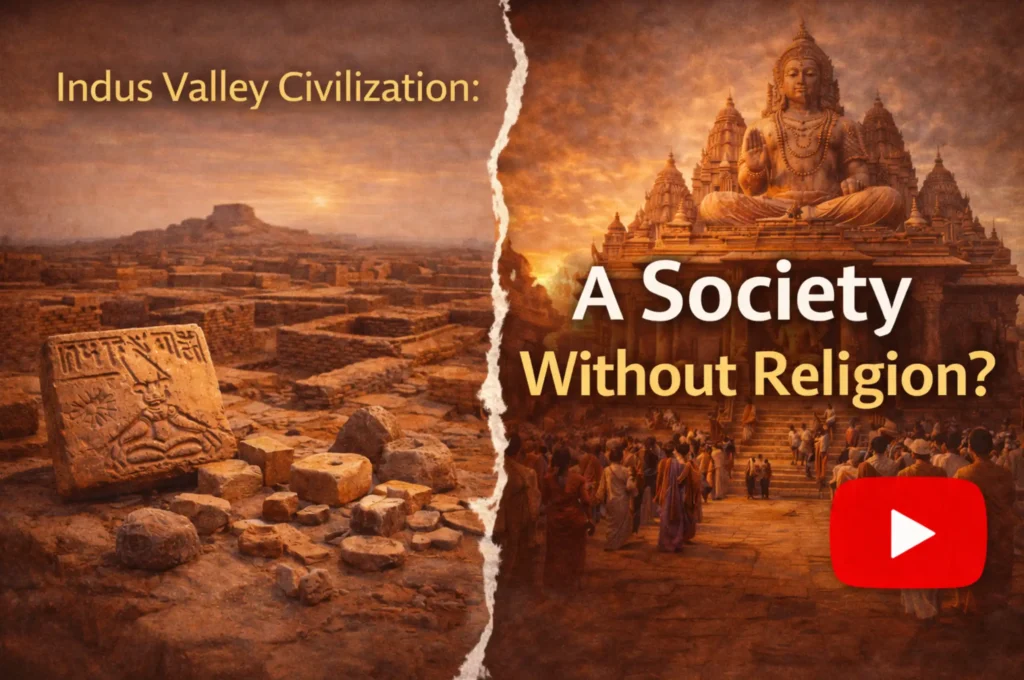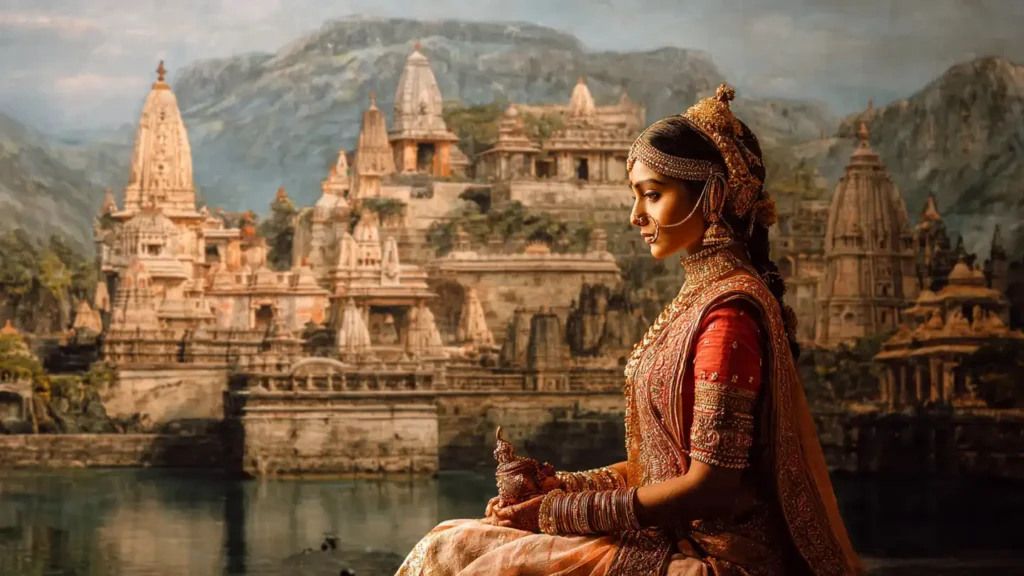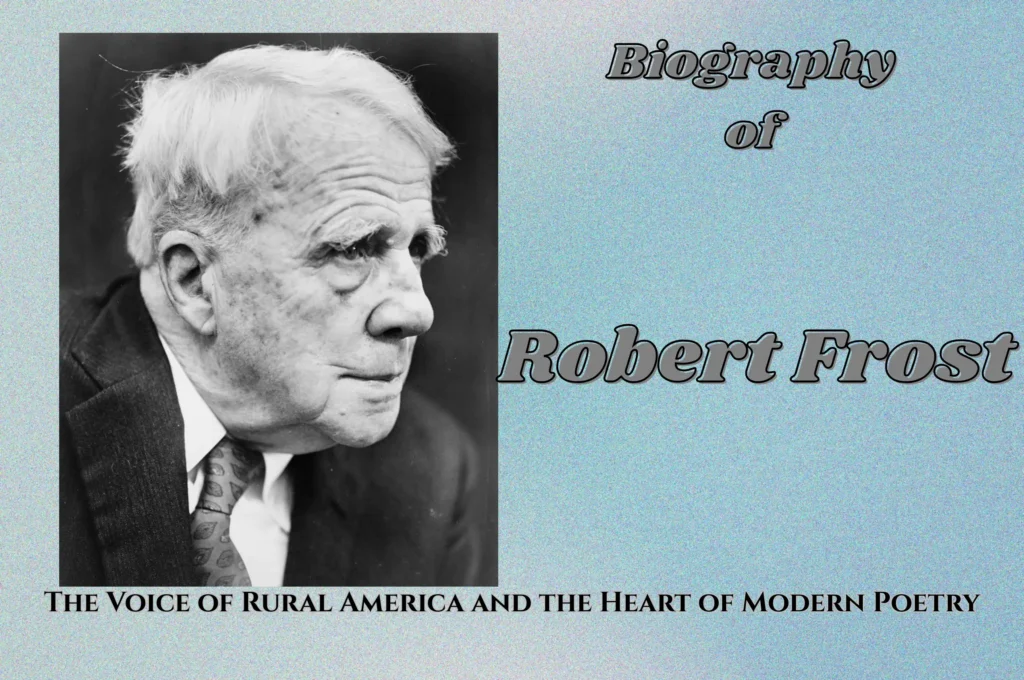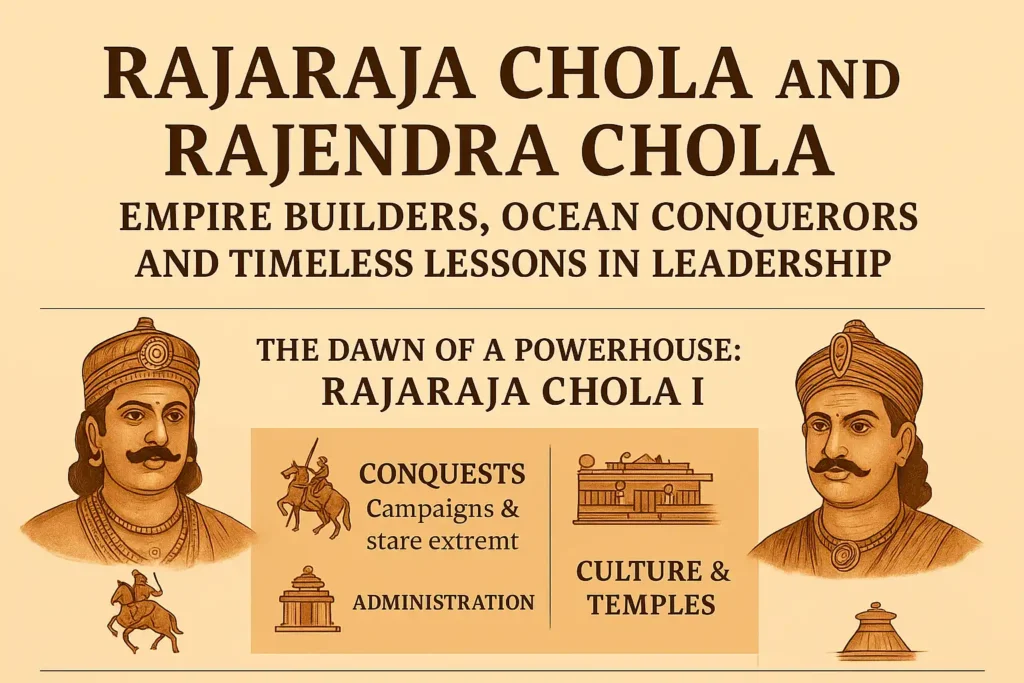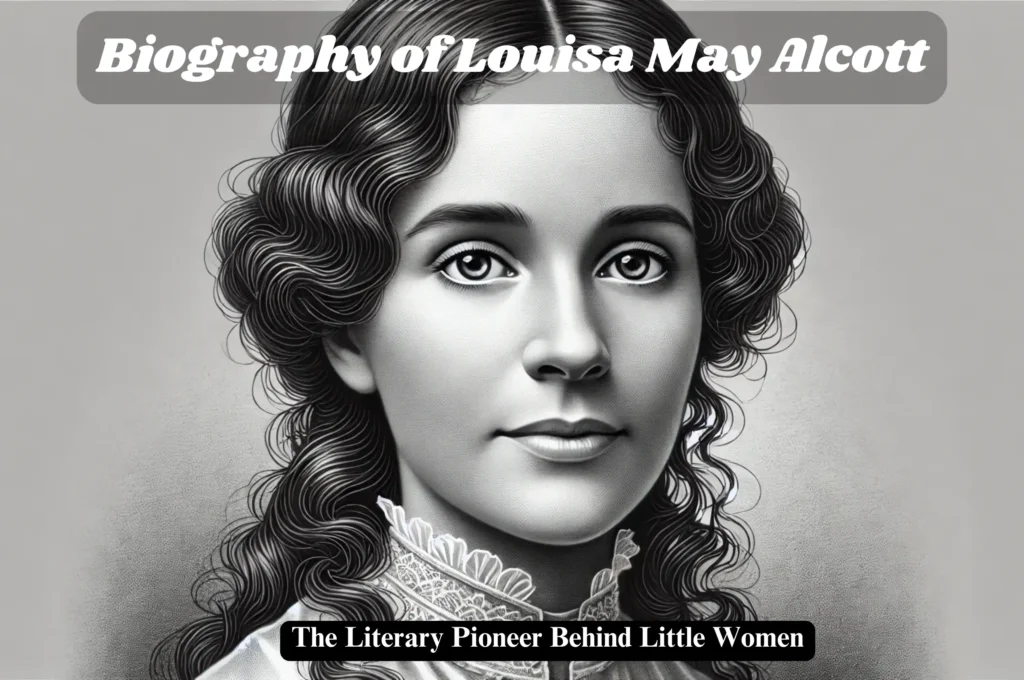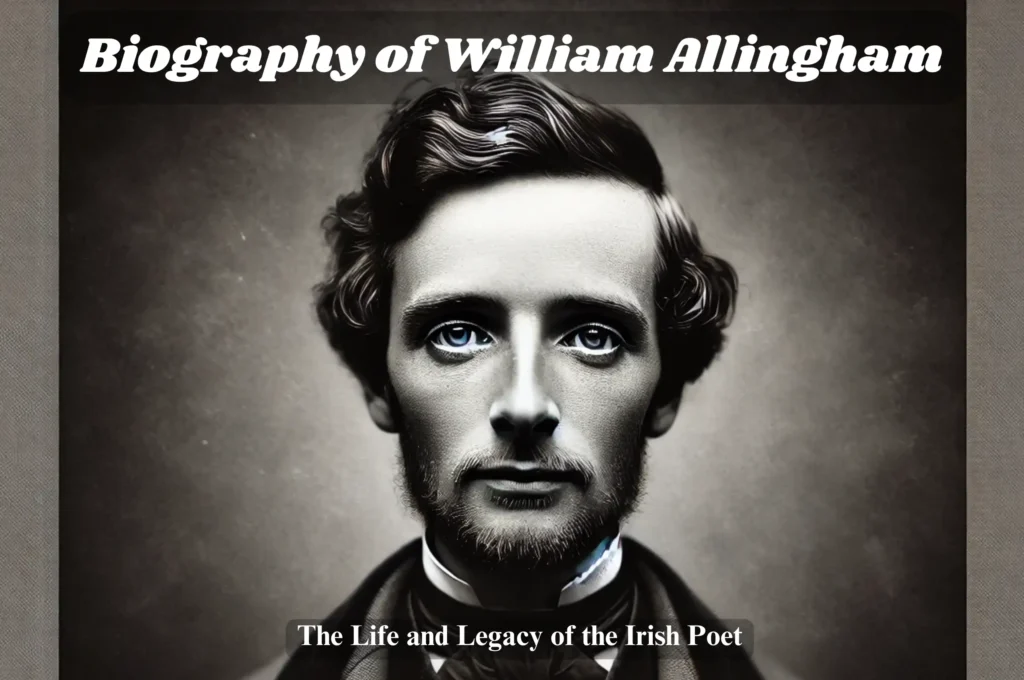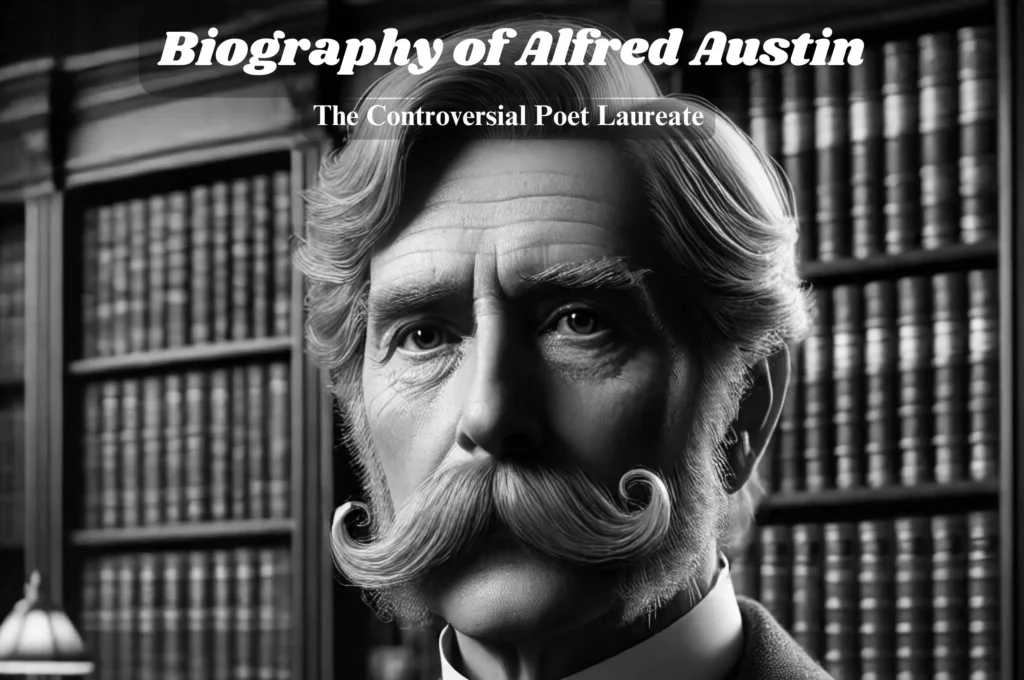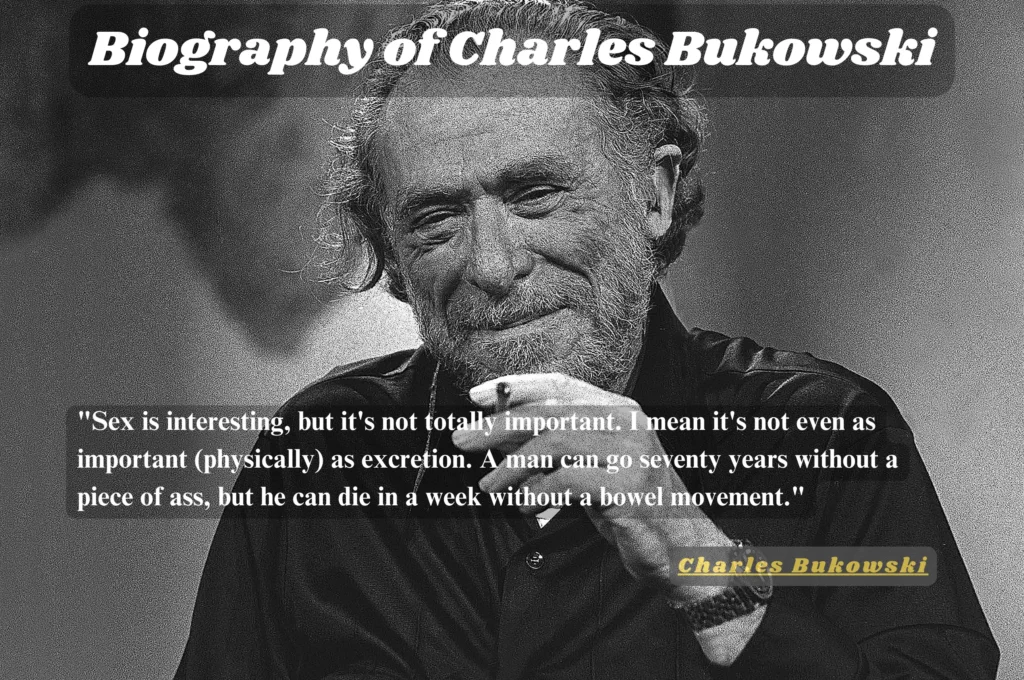Swami Vivekananda was named Narendranath as a child. What were the factors that led to Narendra’s Transformation to Swami Vivekananda? What were Narendranatha’s family values and how did his studies make him a rational thinker? What were his ideologies and what he thought about Hinduism? A detailed overview of his life.

Table of Contents
In America, Swami Vivekanand delivered a speech. The American newspaper New York Herald then stated that Vivekananda was unquestionably the most important person at the Parliament of Religions. After hearing him speak, we see how ridiculous it is to send missionaries to this sophisticated society.
What was said by Swami Vivekananda? Why is he so well-regarded? And what did he believe in?
Swami Vivekananda’s Family Background
Let’s start at the beginning and examine his story. He was born on January 12th, 1863, into a wealthy family. Narendranath Datta was his name. He was also lovingly referred to as Naren. Sanskrit and Persian linguist Durgacharan Datta was his grandfather. At the age of 25, he left his home after completing his studies in law to become a monk.
That is why Naren had heard of and understood the idea of becoming a monk.
His father, Vishwanath Datta, practiced law in the Calcutta High Court as well. Naren was a well-educated, liberal, and progressive man. He was able to read and understand many languages like Sanskrit, Persian, English, Hindi, Urdu, and Arabic. He had studied the Hindu scriptures in Sanskrit. The Bible in English, And Deewan-e-Hafiz in Persian (The collection of poems of the Sufi poet Hafiz). And, it was his favorite book.
He would read poems to Naren and the rest of the family every day. Naren grew up with a liberal outlook on life as a result of this. Because their father Vishwanath revered the Bible and Deewan-e-Hafiz, many people criticized him.
According to his brother Bhupendranath Datta once said, “If it is a sin to be liberal in religious matters, and if comparing and respecting all religions is a sin then yes, Vishwanath was guilty of this sin.”
His father Vishwanath Datta was also a very generous man. He gave his money to the needy with great generosity. Swami Vivekananda was afterward questioned about why he provides money to beggars. That has a negative impact.
So, he replied with this.
“Why you should worry about and stress your brain about what the beggar does with a piece or two you give him? Suppose he spends this money to buy weed, then it is only him affected. But when he resorts to stealing or something worse, that affects the whole society.”
~ Swami Vivekananda
Swami Vivekananda also said that he inherited intellect and compassion from his father.
Additionally, it was his father that prompted his love of Indian classical music. However, his mother, Bhuvaneswari Devi, was a devout woman. She had taught her children moral values in addition to being a devout mother. If one stands up for the truth, she had warned, they might have to endure injustice. Although there can be challenges, hold onto the truth no matter what.
Encouraging Naren, mother Bhuvaneshwari Devi once said.
. “People will speak rubbish, So, try to protect your dignity. But, while doing so, do not try to insult the other person.”
Education of Swami Vivekananda
Let’s go ahead and jump to 1871. at the age of 8 for Naren. The Metropolitan Institution accepted him. The institution’s head was Ishwar Chandra Vidyasagar. Exactly. the same social reformer who helped make widow remarriage legal.
Let’s go ahead and jump to 1871. at the age of 8 for Naren. The Metropolitan Institution accepted him. The institution’s head was Ishwar Chandra Vidyasagar. Exactly. the same social reformer who helped make widow remarriage legal.
This college is now known as Vidyasagar College. He received his education here. And he excelled in both athletics and academics since childhood. In 1879, he enrolled at the Presidency College. It was the same Hindu College founded by David Hare and others under Raja Ram Mohan Roy’s leadership.
So we now see how Swami Vivekananda’s, Raja Ram Mohan Roy’s, and Ishwar Chandra Vidyasagar’s stories are linked.
This was the college where Henry Derozio established in his students the spirit of free thought (free-thinking). These kids were known as “Derozians” or “Young Bengal.” He was also a key figure in the Bengal Renaissance. So, once again, Naren went to a school where students were encouraged to think freely and question everything.
The spirit of Critical Thinking was instilled into them. Along with their college education, he studied the Hindu scripture and Western philosophers in detail. Some famous names here include Immanuel Kant, John Stuart Mill, Charles Darwin, and Herbert Spencer.
Swami Vivekananda was so impressed by Herbert Spencer that he translated Spencer’s book Education into Bengali.
Influence of Brahmo Samaj on Naren
We talked about Raja Ram Mohan Roy and we know that he founded Brahmo Samaj. The values of the Samaj (society) as listed below.
- Rationalism: Using one’s mind.
- Opposing social evils like superstitions and casteism.
- Stopping idol worshipping.
- Monotheism: believing in the singularity of God.
- Toleration.
- And universal brotherhood.
By the time Swami Vivekananda arrived, the Brahmo Samaj had split into various groups. Divided into various fractions. Naren joined one of these fractions after college, where he met people who shared his interests. This interest in religion and spirituality. They all followed a simple philosophy by Adi Shankaracharya. The fundamentals of Advaita Vedanta are based on the Upanishads.
‘Aham Brahmasmi Tvamcha’ – I am Brahm and so are You.
~ The Basic Principle of Advaita Vedanta
And all things are made of the same Brahm. The soul and its creator are inseparable. So, what gives people their differences? Look at others the same way you look at yourself, and look at yourself the same way you look at others.
This Advaita Vedanta idea was proclaimed by Raja Ram Mohan Roy. In addition, he established the Brahmo Samaj and the Vedant College. Swami Vivekananda later led it.
In New York, he established the Vedanta Society. Following then, further centers opened. There is a fundamental connection between Swami Vivekananda and Raja Ram Mohan Roy.
So it’s not unintentional that Swami Vivekananda mentioned this in a speech about Raja Ram Mohan Roy.
“Give as the rose gives perfume because it is its nature, utterly unconscious of giving. The Great Hindu reformer, Raja Ram Mohan Roy, was a wonderful example of unselfish work.”
~ Swami Vivekananda
Vivekananda’s Relation to Western Esotericism and Transcendentalism
But I’d like to point out something extremely fascinating here: there appears to be a relationship between Rabindranath Tagore and Raja Ram Mohan Roy and Swami Vivekananda.
Two of the members of the various factions were well-known. Keshab Chandra Sen was one, and Debendranath Tagore, Rabindranath Tagore’s father, was the other.
Debendranath Tagore established a link between the Brahmo Samaj and Western Esotericism. These are beliefs and philosophies that are not only distinct from science and rationalism but also from the religion of Christianity.
Consider Freemasonry. This is a morality system that uses symbols. Consider it a cult or religion. If you’ve seen the movie or read the book The Da Vinci Code, you’ve probably heard about Free Masonry.
There are numerous conspiracy theories surrounding Freemasonry. Naren had also joined the Free Masonry Lodge in Calcutta, according to friends. Within three months, he was promoted to Master Mason.
When Rabindranath Tagore was in Chicago, it is thought that his Free Mason associates assisted him. What’s more, Swami Vivekanand, or Naren, had accomplished all of this by the age of 20.
Compare it to the present. What can a young boy accomplish in his 20 years today? He plays PUBG, brags on social media, and watches nasty roast videos on YouTube. In comparison, consider Naren. With his insatiable curiosity. He learned from so many diverse sources. He was open to new experiences. Transcendentalism was another intriguing ideology to which Naren belonged.
This was a movement, an ideology that emphasized respecting nature. It says that there is something like a personal spiritual experience. That always thinking rationally doesn’t work. That we shouldn’t look at the world only in a material sense.
One of Swami Vivekananda’s quotes comes to mind here. He said something along these lines.
“What difference does it make to you whether Jesus Christ lived at a certain time or not? What has it to do with you that Moses saw God in the burning bush? The fact that Moses saw God in the burning bush does not constitute your seeing him, does it?”
~ Swami Vivekananda
So, you can see how Swami Vivekananda’s ideals were. Consider them to be a captivating picture on a canvas. Hindu religious scriptures. The Bible, Hafiz’s Poems, Raja Ram Mohan Roy, and Vedanta are all references. Western philosophy, Western esotericism, Freemasonry, and Transcendentalism are all examples of Western philosophies. Combining all of these colors created something so distinctive and beautiful that it immediately appealed to the masses.
His knowledge was so wide that he traveled to America, England, Japan, and Egypt and never felt out of place. Friends, if you wish to learn more about Swami Vivekananda, study his writings and literary works.
Narendranatha’s Journey to a Monk – Narendra’s Transformation to Swami Vivekananda
But how did Swami Vivekananda transition from philosopher to monk? Let us discuss this.
He had a class in college one day. In which Professor William Hastie was reciting The Excursion. William Wordsworth composed this poem. The word ‘trance’ appears in this poem. The professor then attempted to explain the significance of this word to the students, but Naren and the other students were unable to understand it.
So the teacher instructed them to go look at Ramakrishna. Then they would grasp what the word meant. Ramkrishna was conducting a spiritual lecture at his residence in Calcutta. As a result, Naren and his friends went there. The Bhajan (devotional song) performer who was meant to perform did not appear. Naren began to sing as a result.
Ramakrishna appreciated the song and invited him to Dakshineshwar. When Naren arrived, Ramakrishna requested him to sing once more. Ramakrishna told Naren that he could see Narayan (God) in him after hearing his song. Naren has asked this question to several people. “Have you ever seen God?”
People would either say no or divert the question while responding.
Then he asked Ramakrishna the same question.
“Have you seen God?”
Ramakrishna responded, “Yes, I have.” “I’ve seen God in the same way that I see you here.” “More clearly than right now.”
It is said that when Vivekananda asked him to show God, Ramakrishna put his feet on his chest and that was the moment when Vivekananda was able to realize the Bramha.
Naren then recognized Ramakrishna as his spiritual master. Naren was 21 years old in 1884. He was ready to finish his B.A. when he learned of his father’s death. His father had passed away. Furthermore, it is discovered that there are loans that must be returned. Following that, his relatives launch a legal case to determine who owns the property. Naren begins to look for work. But he couldn’t come across any. He was experiencing poverty for the first time in his life.
He knows what it’s like to live in poverty. Even though he was already quite empathetic toward the impoverished, he could now feel their pain. His empathy for poor people grew tremendously.
Later, while remembering that moment, he remarked this. Swami Vivekananda would become frustrated at times throughout this period. And began to doubt the existence of God. His trips to Ramakrishna got more frequent at this time. Ramakrishna aided in his relaxation.
Naren has been meditating since he was a young child. But training with Ramakrishna helped him improve his meditation skills. He asked his teacher to teach him Nirvikalpa Samadhi one day. The most advanced kind of meditation. However, Ramakrishna says that it is only an inferior mind that wishes to focus on meditating. Helping others is the most effective way to worship God.
Vivekananda’s Tour Across India
Following that, we jump to the year 1888. Swami Vivekananda was 25 years old at the time. He left his Math (meditation center) to travel across India. He just had his water bottle, a walking stick, and two of his favorite novels with him. The Bhagavad Gita and Christ’s Imitation.
He would ask for alms in certain locations and give donations in others. He traveled from Lahore to Kanyakumari during his journey. Sometimes via rail, sometimes by foot. He met a lot of individuals and had a lot of chats. People of all races and religions are welcome. Hindus, Christians, and Muslims are all represented. Courtiers and kings. Scholars and government workers.
He had never seen India like this before. He attends a religious meeting in Chicago in 1893 and introduces the Vedanta philosophy to the rest of the globe. In addition to his ideals and manner of thinking. What were his thoughts on patriotism, meat consumption, and cow worship?
It’s quite intriguing. Perhaps even more intriguing is why he teaches the youth that playing football instead of reading the Gita will increase their chances of being admitted to heaven.
Why did Vivekananda Say ” Playing Football is Better that Reading Gita”
Swami said that if you played football instead of reading the Gita, you’d be closer to heaven.
If he would have said this today, they would be labeled as anti-Hindu. But what did Swami Vivekananda mean when he said this? He was truly talking about weakness here. Weakness, both physical and mental.
He never told you not to read the Gita. He stated that you must have the strength to read it before you do so. Both physically and mentally. Only if you have the strength will you be able to comprehend the Gita and the Upanishads. And, to attain this strength, you must first eliminate your physical and mental weaknesses. He stated that a good diet is required to overcome physical weakness and acquire strength. You must eat healthy foods and exercise regularly. Playing football is an example. Only then will you grow physically strong.
We can apply what we’ve learned here to our own life. Many people today consume an unhealthy diet. Eating packed meals or going out to eat. This should be avoided to the greatest extent possible. In addition, home-cooked meals should be consumed. Try to eat a variety of foods even at home. Buckwheat, tapioca, various grains, ragi, bajra, corn Consume organic foods.
That’s preferable to not exercising at all. If you want to study properly, you must have a certain amount of physical strength. It’s all about the physical ailment.
What did Swami Vivekananda mean when he said “mental weakness”?
He stated that mental deficiency is caused by two factors. Superstition and mysticism.
First, let us define superstition. Believing something without question. Swami Vivekananda feared that the religion had deteriorated dangerously in recent decades. People had been arguing about how to drink a glass of water for decades. With the right or left hand? What kind of clothing should be worn? What foods should one consume? Whether or not one should touch something.
He stated that it is a disgrace to humanity that humans have found reasons and explanations for even the most heinous superstitions.
“On the one hand, you have someone who mocks the ancient sages. According to him, the entire Hindu doctrine is nonsense. On the other side, there’s the one who sees omens, both good and evil, in everything. He presents intellectual, metaphysical, and God knows what other justifications for all the superstitions in his community. All superstitions in his village, he claims, are based on the Vedas. You must avoid this. I believe that being an atheist is preferable to being a superstitious moron. Because an atheist exists. He is capable of doing something. However, if you are caught up in superstitions, your mind will perish. The standard of living begins to deteriorate.”
~ Swami Vivekananda
Such superstitions can still be found today. Most religions nowadays are full of such rites and superstitions. Swami Vivekananda believes that the second mental weakness is mystery-mongering.
This means the people that make religion and spirituality a mystery. And spin useless tales around these. Like a fraudster saying that he is a mystic. Claiming to have mystical knowledge “Don’t question what I do, just accept everything I’m saying.”
Many times, they use scientific facts, the quote them but with a generous amount of their pseudoscience mixed in it. And then claim that at the edge of science, their spiritual knowledge begins.
Friends, Swami Vivekananda was a staunch rationalist. A questioning realist. Not only did he consider things like superstitions and mystery-mongering to be weaknesses, but he also compared them to degradation and even death.
“Beware of mystery-mongering. There is no mystery in religion. What’s the mystery in the Vedas, Vedantas, Literature, and Holy books? Our knowledge of nature is limited. That’s why some things seem supernatural to us. But none of these things is a mystery. On this land, never have we been taught that the truths of religion are mysteries. Or that they are the property of some secret society residing at the peak of the Himalayas. I have been to the Himalayas. You didn’t because it is hundreds of miles away from your home. I’m a hermit and I’ve walked around for 14 years. There is no such secret society anywhere.”
~ Swami Vivekananda on Mystery Mongering
Swami Vivekananda on Astrology
Talking about astrology, Swami Vivekananda believed that the Greeks had brought astrology into India. And the science of astronomy, they learned from the Hindus and carried it back. Friends, there is a very important distinction between astronomy and astrology. Astronomy means the scientific study of the universe outside the Earth.
As in if you study planets, stars, and space, if you research them, that’s known as Astronomy. Like the astronomers. We had ancient astronomers in our country like Aryabhatta.
But on the other hand, astrology means, to predict the future based on planets and stars. Swami Vivekananda made fun of astrology. He said that if a star in the sky, could disturb his life, then that star is worthless.
He did acknowledge that some people were good at making predictions, but it did not mean that they were making predictions based on the stars in the sky. It could simply be mind-reading.
“Astrology and mystery mongering is a sign of a weak mind. When weak people lose everything, and find themselves to be weak, then they opt for every strange way to make money. They go to astrologers and things like this. He is a coward and an idiot
~ Swami Vivekananda
who says that it was his fate. But a strong person, stands up knowing that he would make his own fate. Ageing people talk about fates. The youngsters don’t go to astrologers. That’s why whenever things like astrology and mystery-mongering
start infecting our minds, we should visit a doctor. Eat well and rest as well.”
Swami Vivekananda on Cow Worship
Let us talk about cow worship now. Today, many people in our country consider cows as mothers. They worship cows. And very often, these are the same people who worship Savarkar. Consider Savarkar to be a great person.
So, I’ll begin this topic with a fun fact. Did you know what Vinayak Savarkar had to say about cow worship? He had said that cows are useful animals. We should care for cows. But to worship an animal that sits in its dung is a humiliation for humanity.
He questioned how could some people use the cow’s urine and dung to purify. How could people think of them to be ‘pure.’ And, Savarkar wasn’t the only one. Dr. Ambedkar had a similar opinion on this. But even before Savarkar and Ambedkar, Swami Vivekananda was the person to have spoken up about it openly.
In the year 1900, he gave a lecture in California. He says this.
“You’d be shocked to know that according to the old traditions, a person that didn’t eat beef wasn’t considered a good Hindu. On several occasions, it was important to sacrifice a bull and eat it.”
~ Swami Vivekananda
In 1897, Swami Vivekananda returned from America, and, visited Priyanath Mukhopadhyaya’s home. There, someone from the cow protection society had come to meet him. The man who had come told him that they protect the cows from the butchers. That they buy the weak cows from the butchers and keep them in the stables and care for them.
Swami Vivekananda said that it was a good endeavor and asked about their source of income. Then the man replied, that men like him contribute to them. Then Swami Vivekananda asked him about the terrible famine in central India, where people were starving to death and the death toll had crossed 900,000. So many people had died of hunger if their society had done anything to help them at all. The man then replied that their society is for protecting cows only. They protect cows, not humans.
Swami Vivekananda called it disgraceful that with so many people starving to death, they are doing nothing to help them when they can. Then the man justified it by saying that the famine was because of the people’s Karma. This enraged Swami Vivekananda.
“The associations that have no compassion for humans, that see their brethren starving to death, and still don’t donate even a fistful of rice, when for birds and animals, they arrange a feast, I have not even an ounce of compassion for them. And I don’t believe that society benefits from them. If you use Karma as justification, you say that people are dying because of their Karma, then it is to be concluded that in this world, it is useless to work hard and struggle for anything. The work that you’re doing to protect the animals, is no exception. The same can be said for your work as well. That the cow is in the hands of the butcher because of her Karma. And gets killed. And so, we don’t need to intervene in this either.”
~ Swami Vivekananda
Swami Vivekananda said that if he had money, he would use it for humanity first. To provide food and good education to people. To give them spirituality. And then if some money remained, only then could he give their society any money.
Swami Vivekananda Views on Alcohol
What was Swami Vivekananda’s opinion on alcohol? Friends, alcohol is an interesting topic. Many people think that they’d lose their religion if they drink alcohol. And it’s not in Hinduism only. It’s seen in many religions. In some, because of drinking alcohol, in some because of eating meat. And, because of smoking in some religions.
Before I tell you about Swami Vivekananda’s opinion on this topic, I would like to clarify one thing, drinking alcohol and smoking are injurious to health. I don’t endorse these. And neither did Swami Vivekananda endorse them. But his point regarding these was based on virtue and sin.
I mentioned earlier that you shouldn’t eat packaged food. Because it is unhealthy. But I didn’t tell you that you shouldn’t eat unhealthy food because it is a sin. Or that it would bring negativity towards you.
Swami Vivekananda had a similar opinion on meat, alcohol, and smoking. Swami Vivekananda said that fanatics are full of hatred. 90% of the fanatics lead a horrible life. If you distance yourself from these fanatics, then you would have sympathy for even an alcoholic. You’d understand that even a drunkard is a human, like you.
“Then, you’d try to understand all the situations that are dragging him down. And you’d feel that had you been at his place, you might have committed suicide. I’m reminded of a woman her husband was an alcoholic. She complained to me about her husband becoming so. I replied, “Madam, if 20 million wives became like you, then all husbands would become alcoholics.”
~ Swami Vivekananda
Swami Vivekananda Views on Smoking
Swami Vivekananda had an American friend. Mrs. Jonson. She was a police superintendent. She objected heavily to Swami Vivekananda’s habit of smoking. Swami Vivekananda replied to her saying “Mrs. Ashton Jonson believes that any spiritual man shouldn’t be sick. She also feels that my smoking is a sin. But I am what I am. Were I so flexible that I could become whatever someone wanted me to be? But unfortunately, I am yet to see a person that can please everyone.”
Don’t see it as an excuse since Swami Vivekananda used to smoke, you’d be justified in doing so too. It is not so. It is very harmful to your health. And in fact, Swami Vivekananda had once told his disciples, that smoking is not good. And that he was trying to overcome this habit.
Swami Vivekananda Views on Meat-eating
Swami Vivekananda loved to eat meat. One of his favorite food was Hilsa (Ilish) fish with Malabar spinach (Pui-Saag). When he went to America, the first time he had fished with a family there, he wrote about his experience of this to his friend in a letter.
“Yes, I know. Shankaracharya has said that food is for the senses. Whereas Shri Ramanuj has taken food to mean nourishment. In my opinion, we should take that meaning that matches with both of them. Will we spend our entire lives debating this? Which food is pure and which is not? Or will we ever exercise to focus our senses?”
Swami Vivekananda was furious at how religion was limited to the pressure cooker.
People couldn’t look at the truth beyond it. He compared it to a fruit. About how we are arguing over its skin and forgetting about the fruit inside the skin.
Swami Vivekananda Views on Priest-craft
Now let’s talk about Swami Vivekananda’s opinion on priest-craft. The fake Babas and maulvis and priests that go around are the self-proclaimed guardians of the religions. Swami Vivekananda believed that priest-craft is tyrannical, cruel, and heartless.
He said that things like these should be eradicated from the world. He said that Buddha was also strictly against priest-craft.
“Priests think that there is a God and it is possible to understand or reach that God only through them. You donate money in God’s name, worship God, and leave everything up to God. In the world’s history, this priest-craft could be seen time and again. This unquenchable thirst for power. Like the thirst of a tiger. It seems like it is a part of human nature. The priests overpower you, create thousands of rules for you, they tell you the simplest of truths in the most roundabout way they can. They tell you stories to show their superiority over you. You are made to follow many rituals and traditions. These make life so complex, they confuse the mind so much, that if I tell you everything clearly, you wouldn’t like it. You’d go home disappointed.”
He believed that after ages of superstitions and tyranny, priest-craft was born. He said that they won’t give it up themselves and will always be against progress. So, it is up to the people to eradicate priest-craft from their society. They have to take control of their lives into their own hands. Reading all of this, you can understand why Swami Vivekananda liked Budhha so much. He believed that Budhha was the greatest human to ever live on Earth.
“He was the only one who did not aim to gain any power. The other great people said that they were reincarnations of God. And the ones to believe in them will go to heaven. But what did Budhha say even till his last breath?”
“No one can help you. Help yourself and build your path to enlightenment yourself.”
~ Buddha
“Help yourself.”
Budhha gave control of the lives of people into their own hands. He had given people freedom and confidence. Similarly, Swami Vivekananda encouraged people to stand on their own feet. To be brave. He had also given people some principles to adopt.
After reading all this, now your biggest question would be, What is Hinduism?
Swami Vivekananda Views on Hinduism
Swami Vivekananda rejected everything that is often associated with this religion.
- Done away with superstition.
- No to any Mystery.
- No more Food Code about what one should and shouldn’t eat.
- No Dress Code.
- No priest-craft and believing in the priests.
- No worshipping Cows.
So what is religion?
For Swami Vivekananda, Hinduism is a set of principles. The principles were laid down in the Upanishads and the Gita. He considered them to be the real scriptures. In his opinion, the Puranas are full of fallacies and mistakes. And the people to write those had limited intelligence.
He believed Ram, Krishna, Budhha, Chaitanya, Nanak, and Kabir were the true embodiments. With hearts as vast as the sky. So, the true embodiments and the true scriptures, which principles do they talk about? Friends, all of them are based upon “I am Brahma and so are You.” Meaning everything has God in it.
There is God in every being. It means that the principles that we should adopt are compassion, sympathy, universalism, equality, and liberty. As simple as that. If you listen to Swami Vivekananda’s speech, the one he gave in Chicago, You’ll see all these principles within his first few sentences.
“I bless you so that your arrogance over your race, creed, birth, religious merit disappears forever.”
~ Swami Vivekananda
But nowadays, many forms of ill-will can be seen among the people. Sexism, casteism, racism, xenophobia, communal hatred, classist attitude. These need to be forsaken.
Death of Swami Vivekananda
Vivekananda died on 4th July 1902. As per the accounts from his disciples, he attained samadhi or in fact, it was a Maha Samadhi. His soul left his body while meditation. This day was normal and as usual. He meditated for 3 hours in the morning at Belur Math. Later he delivered lectures to his students on Sanskrit Grammar, the Yogas and their philosophy, and some parts of Yajur Veda. In the evening, by 7:00 PM, he went for a meditation session and asked his disciples not to disturb him. While meditating he left his body at 9:20 PM.
It was found that a blood vessel in his brain ruptured and caused his death, and it happened as his samadhi state was so intense that it pierced an opening in the crown of his head (brahmarandhra).
He once mentioned that he would not live for 40 years. He was cremated opposite to the site, where Ramakrishna Paramhansa was cremated. This was the time when the disciple and the teacher mixed in the ultimate Brahma.
Conclusion on Life of Swami Vivekananda
In this post we read about Swami Vivekananda’s life. The role of his family in making him a monk or a great spiritual leader. His Education also played an important role in making his views rational and logical. At very early age, he achieved great knowledge.
His international presence was known to the world after his speech in Chicago. His views on Cow Worship, Alcohol, Smoking, and meat eating were not just based on some priest or maulvis, it was his radical thinking.
Quotes By Swami Vivekananda – Inspirational and Motivational
Below I have mentioned some Quotes which are Inspirational and Motivational. Hope you will like it. Please download and share with your friends and family.
I hope that this article forces you towards the right path. Look at your life. Where can you bring improvements and eradicate these negative things from your life?
Thank you very much. Follow us on Social Media platforms.
We have a free online learning website: https://byqus.com
